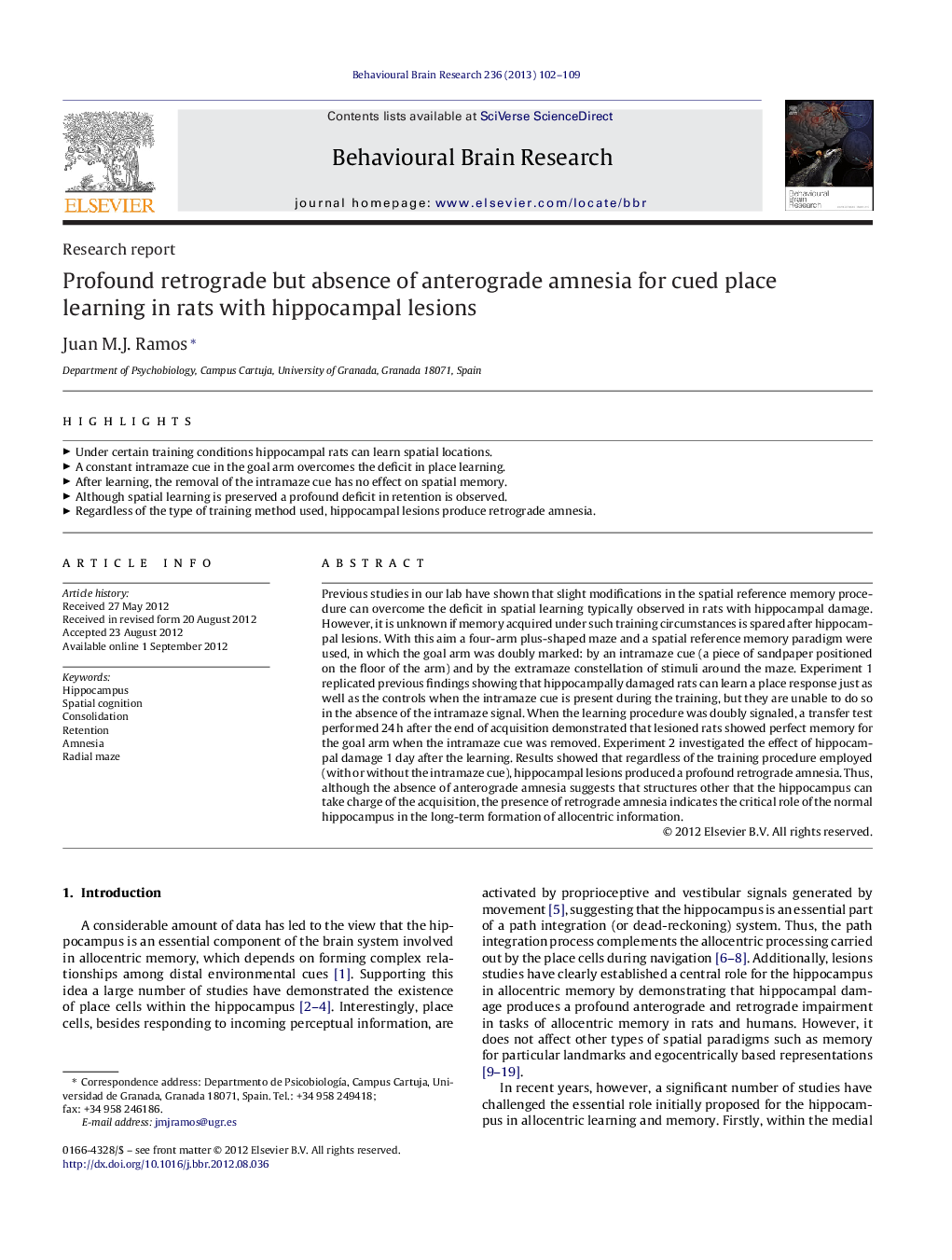| Article ID | Journal | Published Year | Pages | File Type |
|---|---|---|---|---|
| 6259447 | Behavioural Brain Research | 2013 | 8 Pages |
Previous studies in our lab have shown that slight modifications in the spatial reference memory procedure can overcome the deficit in spatial learning typically observed in rats with hippocampal damage. However, it is unknown if memory acquired under such training circumstances is spared after hippocampal lesions. With this aim a four-arm plus-shaped maze and a spatial reference memory paradigm were used, in which the goal arm was doubly marked: by an intramaze cue (a piece of sandpaper positioned on the floor of the arm) and by the extramaze constellation of stimuli around the maze. Experiment 1 replicated previous findings showing that hippocampally damaged rats can learn a place response just as well as the controls when the intramaze cue is present during the training, but they are unable to do so in the absence of the intramaze signal. When the learning procedure was doubly signaled, a transfer test performed 24Â h after the end of acquisition demonstrated that lesioned rats showed perfect memory for the goal arm when the intramaze cue was removed. Experiment 2 investigated the effect of hippocampal damage 1 day after the learning. Results showed that regardless of the training procedure employed (with or without the intramaze cue), hippocampal lesions produced a profound retrograde amnesia. Thus, although the absence of anterograde amnesia suggests that structures other that the hippocampus can take charge of the acquisition, the presence of retrograde amnesia indicates the critical role of the normal hippocampus in the long-term formation of allocentric information.
⺠Under certain training conditions hippocampal rats can learn spatial locations. ⺠A constant intramaze cue in the goal arm overcomes the deficit in place learning. ⺠After learning, the removal of the intramaze cue has no effect on spatial memory. ⺠Although spatial learning is preserved a profound deficit in retention is observed. ⺠Regardless of the type of training method used, hippocampal lesions produce retrograde amnesia.
